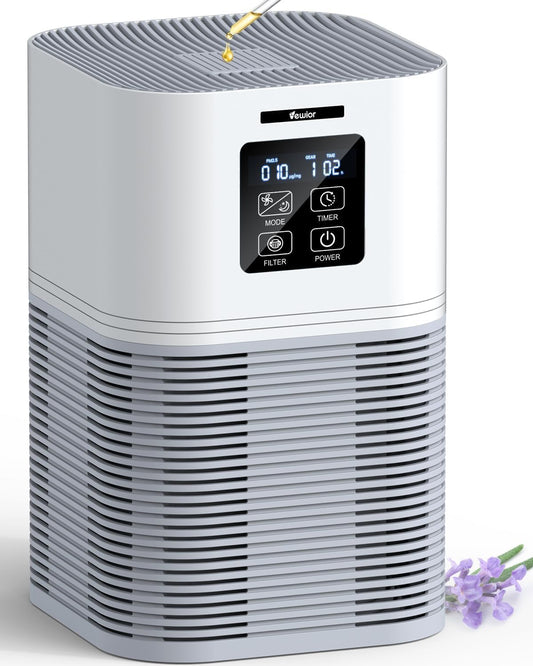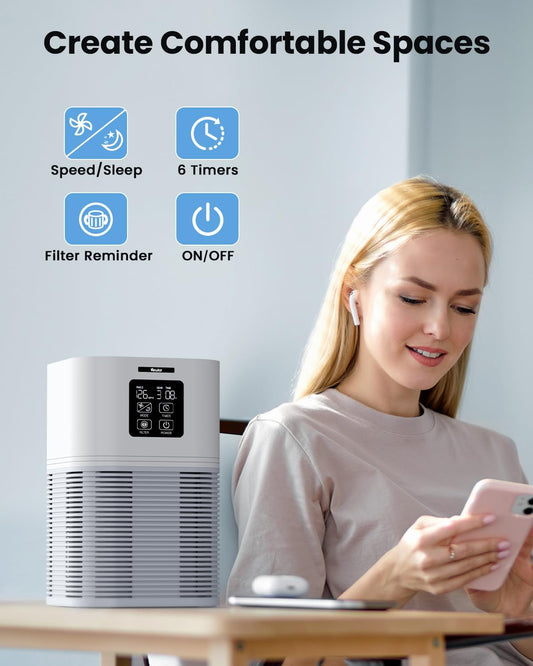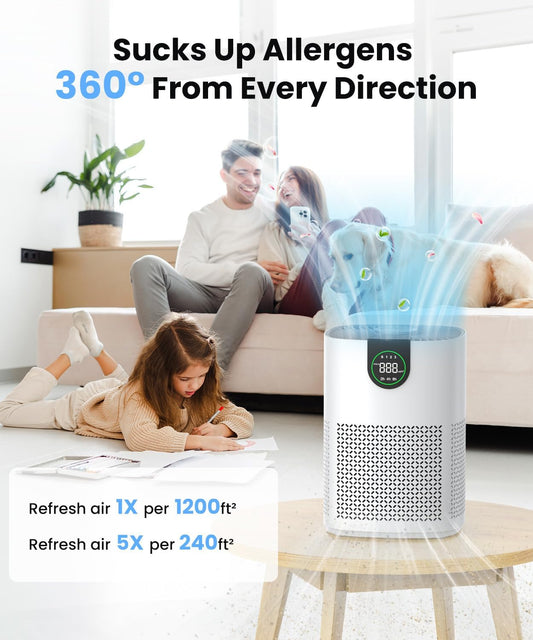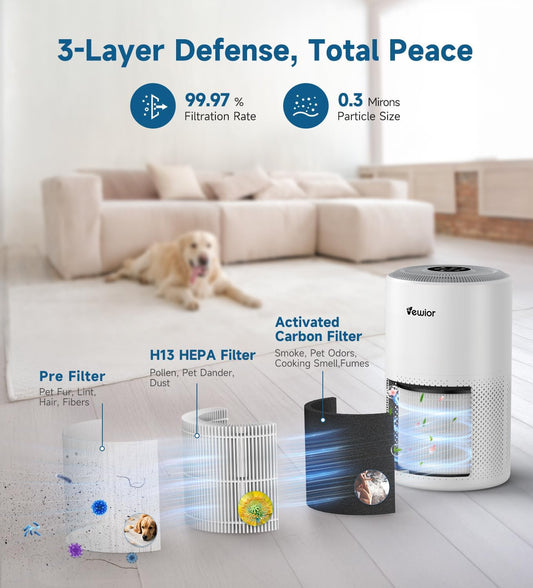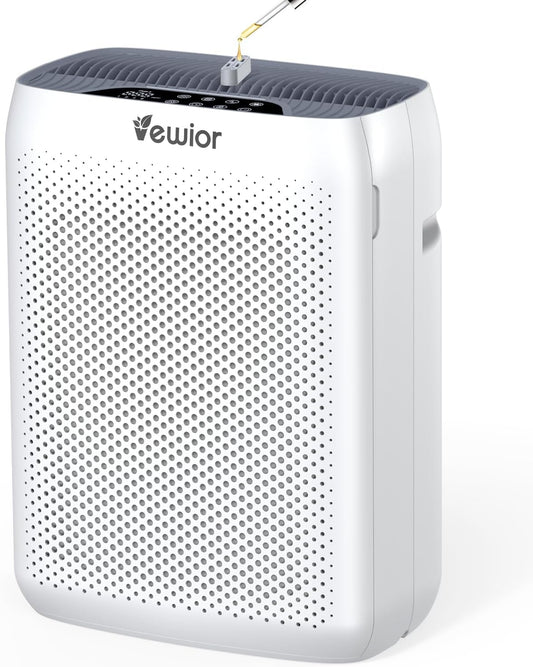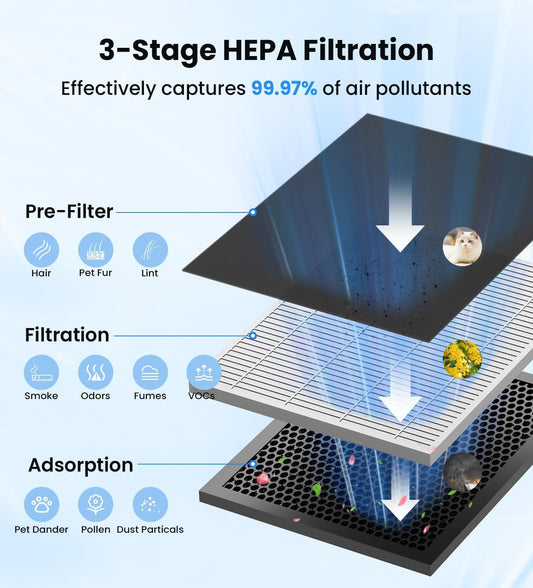Air purifiers have become essential appliances in many households, providing cleaner and healthier indoor air. As consumers, it is important to understand the lifespan of these devices to make informed decisions about their purchase and maintenance. In this evaluation article, we will explore the typical lifespan of air purifiers, factors that influence their longevity, and tips for maximizing their lifespan. By understanding these factors, you can ensure the longevity of your air purifier and make the most of your investment.
Understanding the Lifespan of Air Purifiers
The lifespan of an air purifier can vary depending on several factors, including the quality of the device, frequency of use, maintenance, and the type of filtration system it employs. On average, air purifiers can last between 5 to 10 years. However, it is important to note that this is a general estimate and individual circumstances may affect the actual lifespan of your air purifier.
Factors Affecting Air Purifier Lifespan
- Quality and Build: The overall quality and construction of the air purifier play a significant role in its lifespan. Well-built devices with high-quality materials tend to last longer compared to cheaper, low-quality alternatives.
- Filtration System: The type and quality of the filtration system used in the air purifier can impact its lifespan. HEPA filters, known for their effectiveness in removing airborne particles, typically have a longer lifespan compared to other types of filters.
- Frequency of Use: The frequency at which you use your air purifier can influence its lifespan. Continuous usage for extended periods may result in faster wear and tear of components.
- Maintenance and Filter Replacement: Regular maintenance, such as cleaning the filters and replacing them as recommended by the manufacturer, is crucial for prolonging the lifespan of your air purifier. Neglecting maintenance can lead to reduced performance and a shorter overall lifespan.
Maximizing the Lifespan of Your Air Purifier
- Follow Manufacturer Guidelines: Read and follow the manufacturer's guidelines for usage, maintenance, and filter replacement. This ensures that you are taking the necessary steps to optimize the lifespan of your air purifier.
- Clean and Replace Filters: Regularly clean or replace the filters as recommended. This helps maintain the efficiency of the air purifier and extends its lifespan.
- Keep the Air Purifier Clean: Dust and debris can accumulate on the exterior and vents of the air purifier, affecting its performance. Regularly clean the device to prevent clogging and improve its longevity.
- Avoid Overworking the Device: While air purifiers are designed to run continuously, avoid overworking them unnecessarily. If the air quality is relatively good, consider using the device at lower fan speeds or intermittently to reduce strain on the components.
Signs that Your Air Purifier Needs Replacement
- Reduced Performance: If you notice a significant decrease in the air purifier's effectiveness in removing airborne pollutants, it may be a sign that the filters are no longer functioning optimally and need replacement. Diminished airflow or a decline in air quality can indicate the need for a new unit.
- Noisy Operation: Excessive noise or unusual sounds coming from the air purifier can indicate mechanical issues or worn-out components. If attempts to troubleshoot and resolve the noise are unsuccessful, it may be time to consider replacing the device.
- Age and Warranty: While age alone may not be the sole determining factor for replacement, if your air purifier is approaching or surpassing its expected lifespan and is no longer under warranty, it may be a good time to evaluate its performance and consider an upgrade.
- Irreparable Damage: In some cases, unexpected damage or malfunctions may render the air purifier irreparable. If the cost of repairs outweighs the cost of a new unit or if replacement parts are no longer available, it may be more practical to invest in a new air purifier.
Conclusion
Air purifiers can significantly improve indoor air quality and promote a healthier living environment. Understanding the typical lifespan of air purifiers and the factors that influence their longevity is essential for making informed decisions about their purchase and maintenance. Investing in a new air purifier when necessary is a worthwhile step in maintaining good indoor air quality and supporting your overall well-being.


